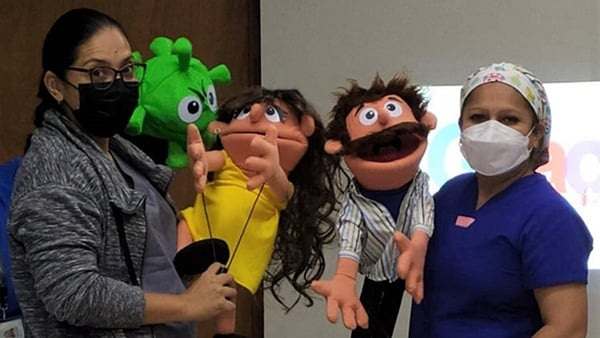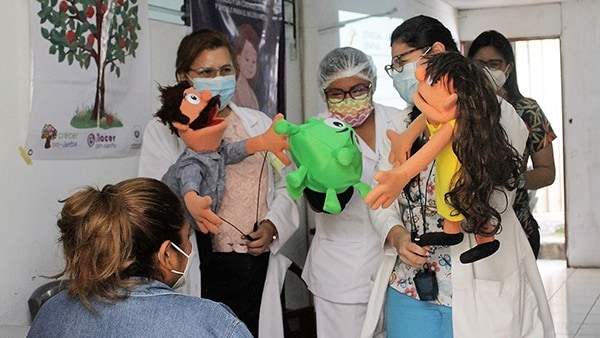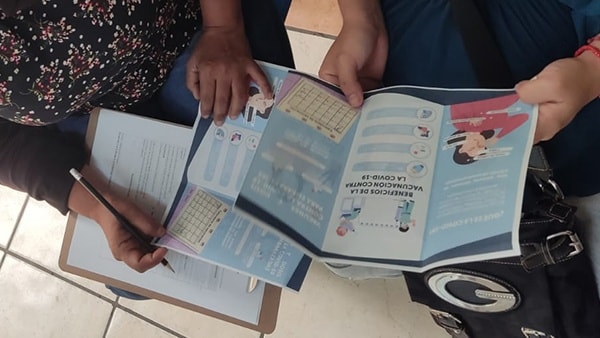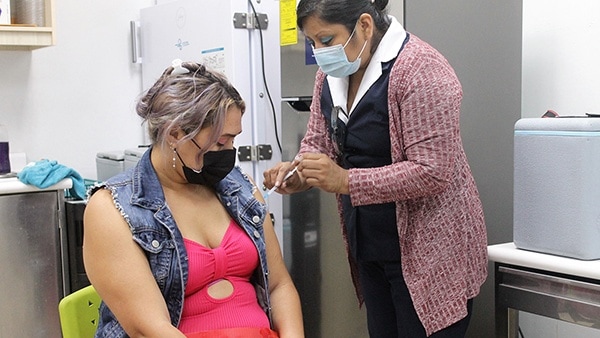At a glance
By February 2022, over 70% of El Salvador's population received two doses of COVID-19 vaccine. This was achieved months earlier than the June goal set by the World Health Organization (WHO). Health officials were concerned pregnant women were not as up to date on their COVID-19 vaccines. CDC collaborated with El Salvador's Ministry of Health (MOH) and partners to develop and launch an education campaign to encourage pregnant women to get the COVID-19 vaccine.

The challenge
On November 26, 2021, the world learned about a new variant of concern called Omicron. Within a month, this more contagious form of the virus that causes COVID-19 spread around the world. To reduce deaths and severe illness caused by COVID-19, WHO called on all countries to vaccinate 70% of their population by mid-2022.
By February 2022—less than a year after launching the first vaccination campaign— more than 70% of El Salvador's population received their first two doses of the COVID-19 vaccine. This was higher than the goal set by WHO. However, health officials were concerned that the percentage of pregnant women who were up to date with their COVID-19 vaccinations was lower.
Interventions
Staff from the CDC working in El Salvador collaborated with partners Asociación de Pediatría de El Salvador (Pediatric Association of El Salvador) and The Task Force for Global Health. They developed educational materials that explained how getting the COVID-19 vaccine will keep women as healthy as possible during their pregnancies.
From August to September 2022, CDC and partners worked with the El Salvador Ministry of Public Health (MINSAL). The teams developed and launched an educational program that explained why it's important for pregnant women to get vaccinated against COVID-19.

Teaching future patients and caregivers to be COVID-19 free
The goal was to explain to mothers at any point in their pregnancy why they need to get a COVID-19 vaccine. Health officials also wanted to reach close relatives of pregnant women who influence their decision to get the vaccine.
The education campaign was also designed to give COVID-19 prevention information to health workers caring for pregnant women in different medical settings, religious leaders, and other key members of the community.
The purpose of this educational campaign was to provide counseling and guidance—over the phone and in-person—to expectant and potential parents, as well other relatives.

Results
CDC and MINSAL developed lesson plans and other educational materials to raise COVID-19 vaccination awareness among pregnant women. They created flipcharts, pamphlets, posters and play materials such as puppets. These educational materials – especially the puppets – were very well received by the health workers because it kept the interest of counseled participants.

Forty-eight MINSAL outpatient facilities in the five health regions of El Salvador participated in the project with 814 participants. Two hundred eighty-five were pregnant. At the end of the program, two-thirds of the unvaccinated participants received a dose of COVID-19 vaccine.
The results of this pilot program were so positive, that the COVID-19 materials are being integrated into the MOH's official educational materials. All the art and materials were donated to El Salvador's MINSAL for use across the country.

